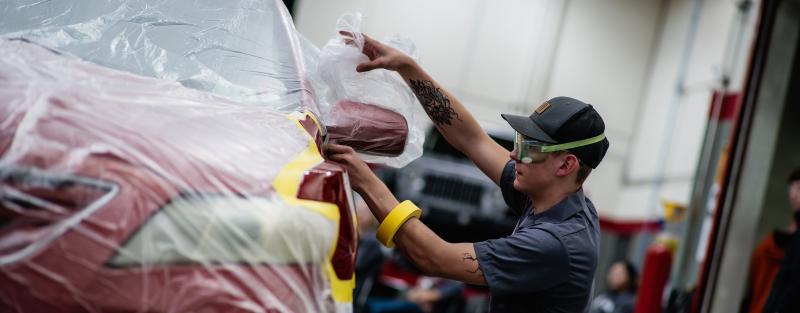In five semesters, explore the classes that will teach you to repair the various parts of an automobile after sustaining damage.
Gain knowledge and skills in:
- Automotive collision repair shop safety
- Structural and non-structural auto repair
- Metal finishing
- Movable automotive glass and hardware
- Metal welding and cutting
- Surface preparation and refinishing
- Panel repair and replacement
- Estimating
- Auto body collision repair shop management
- Customer relations and sales
- Structural damage and diagnosis
After your first year, you’ll have enough skills to find a part-time job. Your instructors will help you partner with a local business to earn money while earning your degree.
Lectures are paired with lab classes to give you hands-on collision repair shop experience in that specific topic. Internship classes are designed to recreate working in an industry setting.
You’ll also earn third-party industry-standard certifications from the Automotive Service Excellence (ASE) Education Foundation, including:
- Non-structural analysis and damage analysis
- Structural analysis and damage repair
- Painting and refinishing
General education requirements round out your learning experience and reinforce the practical soft skills employers want. Study math, written and oral communications, business, science and humanities.
